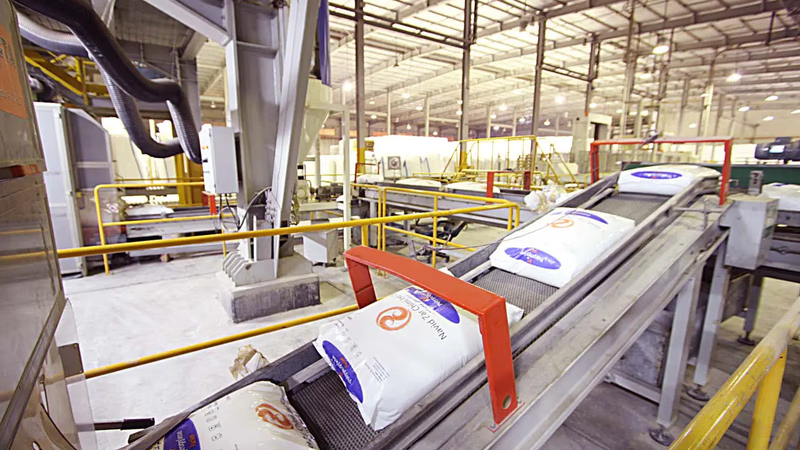
Middle Eastern propylene production facilities drive regional trade.
The Middle East has an abundance of natural gas and petroleum, which are key feedstocks for producing propylene, the precursor to polypropylene. The region's strategic location allows for easy access to major markets in Asia and Europe, facilitating export logistics. The use of advanced catalysts like the Ziegler-Natta catalyst has enabled efficient polypropylene production at relatively mild temperatures and pressures. Many Middle Eastern countries are diversifying their economies away from crude oil dependency, and the petrochemical industry, including polypropylene production, is a significant part of this strategy. There is a rising demand for polypropylene due to urbanization and increasing income levels, especially in nearby regions like China and India, which drives capacity additions in the Middle East.
The Middle East, particularly the Gulf Cooperation Council (GCC) countries, is rich in natural resources, especially hydrocarbons such as crude oil and natural gas. These hydrocarbons serve as the primary feedstock for the production of polypropylene and its precursor, propylene. The availability of abundant and low-cost feedstock in the region provides a competitive advantage for polypropylene production. Many countries in the Middle East have adopted strategic plans and policies to diversify their economies and reduce their reliance on oil and gas exports. Petrochemical development has been a key focus of these strategies, aiming to leverage the region's feedstock resources to build a thriving petrochemical industry. Polypropylene, being a widely used polymer, has been a significant focus of these development plans.
The Middle East benefits from both a growing domestic market and access to global markets. The region's expanding population, urbanization, and industrialization drive the demand for polypropylene in various sectors such as packaging, automotive, construction, and consumer goods. Additionally, the strategic location and well-connected logistics infrastructure enable efficient export of polypropylene to international markets. The Middle East has adopted advanced technologies and process improvements in polypropylene production. This includes the use of modern catalysts, optimized process parameters, and advanced process control systems. These technological advancements enhance productivity, product quality, and cost competitiveness of polypropylene production in the region.
Saudi Arabia is a major producer of propylene in the Middle East. Companies like Saudi Aramco, SABIC (Saudi Basic Industries Corporation), and Tasnee (National Industrialization Company) have substantial propylene production capacities. Saudi Aramco, the national oil company of Saudi Arabia, operates refineries and petrochemical complexes that produce propylene as a byproduct of crude oil refining and natural gas processing. Qatar is also a significant producer of propylene. Companies such as Qatar Petrochemical Company (QAPCO), Qatar Chemical Company (Q-Chem), and Industries Qatar (IQ) have propylene production facilities. These companies produce propylene through steam cracking of hydrocarbons, particularly natural gas liquids (NGLs), which are abundant in Qatar.
Oman has propylene production facilities operated by companies like Oman Oil Refineries and Petroleum Industries Company (Orpic). Orpic's Sohar Refinery and Polypropylene Plant produce propylene as a byproduct of refining operations. Jam Polypropylene Company produces 300,000 tons per year of polypropylene in a wide range, under the brand name "JAMPILEN" with the highest quality and meets the needs of the complementary industries.
The UAE has several producers of propylene. Companies like Borouge, a joint venture between Abu Dhabi National Oil Company (ADNOC) and Borealis, and Abu Dhabi Polymers Company (Takreer) have propylene production capacities. Borouge operates a major integrated petrochemical complex in Ruwais, UAE, which includes propylene production units. Iran is a significant producer of propylene in the Middle East. The National Petrochemical Company (NPC) of Iran oversees propylene production through various petrochemical complexes and refineries across the country. Companies like Jam Petrochemical Company, Marun Petrochemical Company, and Bandar Imam Petrochemical Company are key players in propylene production in Iran.
The Middle East has invested in large-scale integrated petrochemical complexes, where refining and petrochemical operations are integrated in a single location. These complexes allow for efficient utilization of feedstock and the production of a wide range of petrochemical products, including polypropylene. The integration of production facilities, logistics, and infrastructure in these complexes enhances cost-effectiveness and competitiveness. Countries in the Middle East have established business-friendly environments, offering incentives and support for investments in the petrochemical industry. These include tax incentives, land grants, favorable regulations, and access to infrastructure and utilities. Such measures attract domestic and international companies to establish polypropylene production facilities in the region.
-
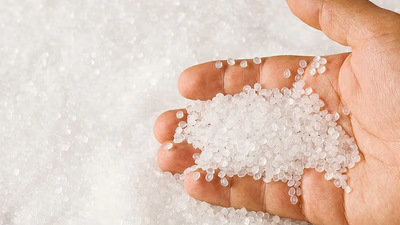
Polypropylene is a versatile thermoplastic polymer derived from propylene, known for its high strength-to-weight ratio, chemical resistance, and thermal stability. It is widely utilized across various industries, including automotive, packaging, and textiles. Its lightweight nature makes it ideal for applications requiring weight reduction, such as automotive parts and packaging materials. Polypropylene"s excellent clarity and impact resistance allow it to be molded into diverse shapes for containers and films. In textiles, polypropylene fibers are used to create durable non-woven fabrics and carpets due to their abrasion resistance and moisture-wicking properties. The polymerization process of propylene involves the Ziegler-Natta catalyst, resulting in an isotactic polymer with high crystallization potential. Polypropylene"s resistance to solvents, bases, and acids enhances its suitability for containers and pipes in aggressive environments. Its low moisture absorption compared to other polymers makes it advantageous for various applications.
Despite its low melt strength limiting some processing methods like blow molding, polypropylene"s high melting point ensures it retains shape under heat exposure. Additionally, its electrical insulation properties make it valuable in electronic components. "
-

The Middle East is a leading producer of propylene, essential for polypropylene manufacturing, due to its abundant natural gas and petroleum resources. The region"s strategic location facilitates access to major markets in Asia and Europe, enhancing export logistics. Advanced catalysts and technologies have improved production efficiency, allowing for cost-effective polypropylene output. Countries like Saudi Arabia, Qatar, Oman, the UAE, and Iran are key players in this sector, with companies such as Saudi Aramco and Borouge leading production efforts. The growing demand for polypropylene driven by urbanization and industrialization in nearby regions like China and India further boosts capacity expansions in the Middle East. As these nations diversify their economies away from oil dependency, the petrochemical industry becomes increasingly vital. Investments in integrated petrochemical complexes enhance productivity and competitiveness while fostering a business-friendly environment through incentives for domestic and international investors. This strategic focus on petrochemicals positions the Middle East as a significant player in the global polypropylene market. "
-
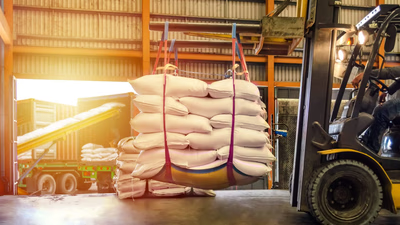
Karl Ziegler"s discovery of the Ziegler-Natta catalyst in 1951 revolutionized the production of polypropylene, enabling its commercial use by 1957. This polymer is known for its excellent mechanical properties, chemical resistance, and thermal stability, making it suitable for diverse applications such as packaging, textiles, and automotive components. The versatility of polypropylene has led to advancements in production technologies and the development of various grades tailored for specific industry needs. Recent trends emphasize recycling and sustainability, with innovations aimed at reprocessing post-consumer waste and creating bio-based alternatives. The global polypropylene market is projected to grow significantly, with a compound annual growth rate (CAGR) of 5. 78% from 2024 to 2029. The Asia-Pacific region is expected to lead in consumption due to high demand from countries like China and India. As industries continue to seek sustainable solutions, the focus on enhancing polypropylene"s properties through nanomaterials and advanced catalysts will likely shape its future applications.
-
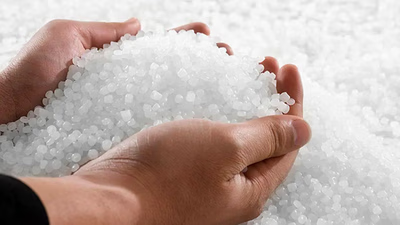
Middle Eastern countries, notably Saudi Arabia, Qatar, the UAE, and Oman, have heavily invested in petrochemical infrastructure, positioning themselves as leaders in global polypropylene production. The region"s abundant and low-cost feedstock from natural gas and crude oil supports large-scale petrochemical complexes. Global polypropylene capacity is projected to grow significantly from 97. 65 million tonnes per annum (mtpa) in 2022 to 159. 35 mtpa by 2027, with a notable number of new projects planned primarily in Asia and the Middle East. Despite regional market challenges such as oversupply in Northeast and Southeast Asia, Middle Eastern producers are expected to maintain production levels to capture market share. Companies like Borouge and SABIC are key players in the UAE and Saudi Arabia respectively, contributing significantly to the region"s output. Oman also plays a role through Orpic"s production facilities.
The competitive landscape includes pressures from European imports and potential supply gluts from China affecting global dynamics. As the Middle East anticipates an increase in polypropylene capacity at an average annual growth rate of 9. 5%, it remains crucial for stakeholders to stay informed through industry reports for accurate insights into this evolving market. "
-
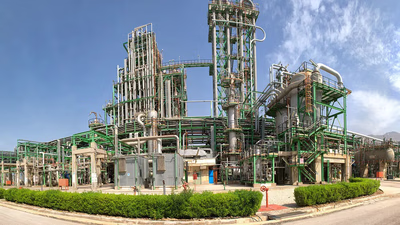
Polypropylene is produced in various grades, each tailored for specific applications based on molecular weight, mechanical properties, and processing methods. High molecular weight grades provide superior strength and toughness, while low molecular weight options enhance flow properties and ease of processing. Key grades include homopolymer PP, known for its high melting point and mechanical strength; random copolymer PP, which improves impact resistance; block copolymer PP, combining stiffness with enhanced clarity; and HMS-PP, designed for improved processability. Polypropylene can also be reinforced with fillers to boost its mechanical properties. Specialty grades are available for unique applications such as flame-retardant or UV-stabilized polypropylene. The choice of grade impacts cost-effectiveness without sacrificing performance, making polypropylene a versatile material across industries like automotive and packaging.
-
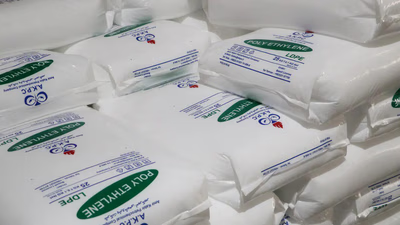
Polypropylene is a versatile polymer used across various industries due to its lightweight, durability, and chemical resistance. It can be molded into different forms such as fibers, films, and complex shapes through processes like injection molding and extrusion. Its high melting point and excellent electrical insulation properties make it suitable for automotive components, packaging materials, and electrical applications. In the automotive sector, polypropylene is utilized for bumpers, interior trim, and fuel systems due to its impact resistance and heat tolerance. The construction industry benefits from polypropylene"s chemical resistance in pipes, fittings, and insulation materials. Additionally, it finds applications in agriculture for greenhouse films and irrigation components. Polypropylene"s cost-effectiveness compared to other engineering plastics has led to its increased use in medical devices and furniture manufacturing. Its unique properties allow for the development of new grades that enhance performance across various applications.






